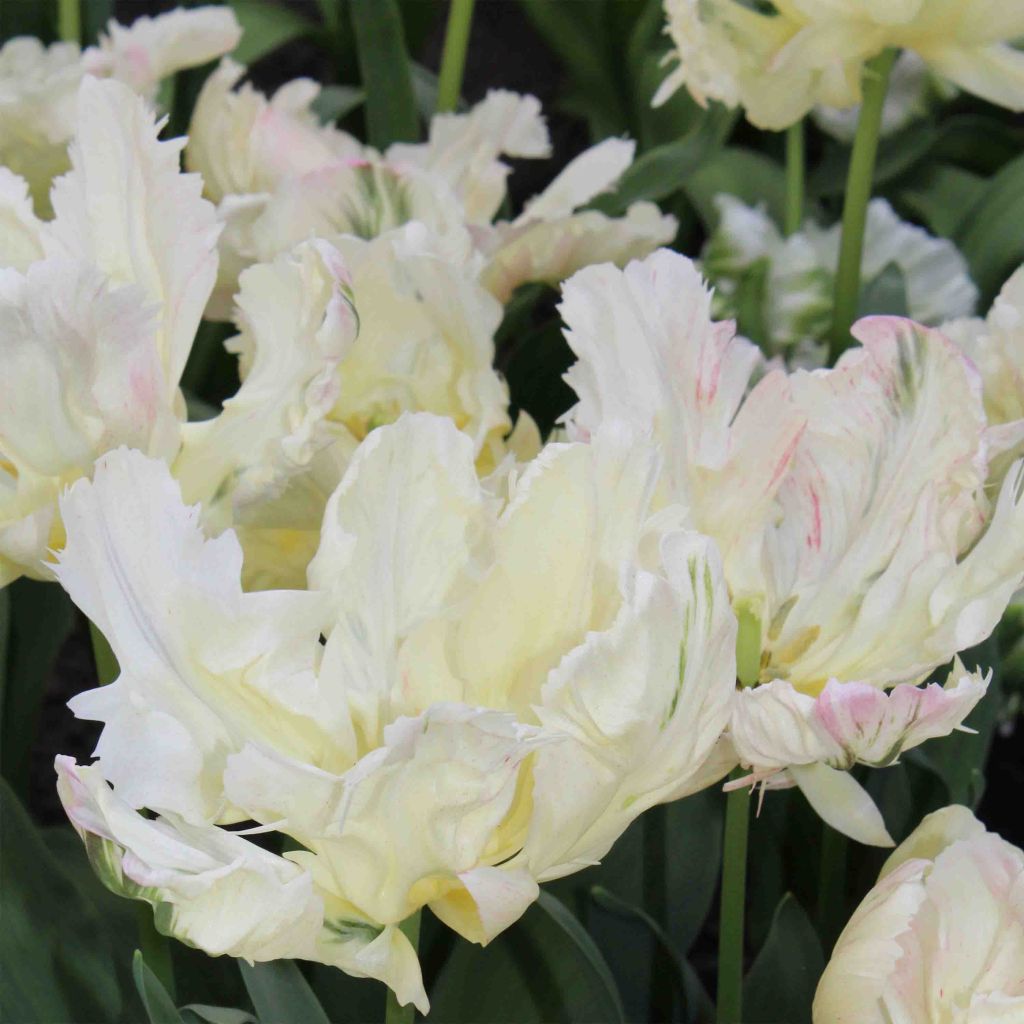

Tulipe Libretto Parrot - Tulipe perroquet
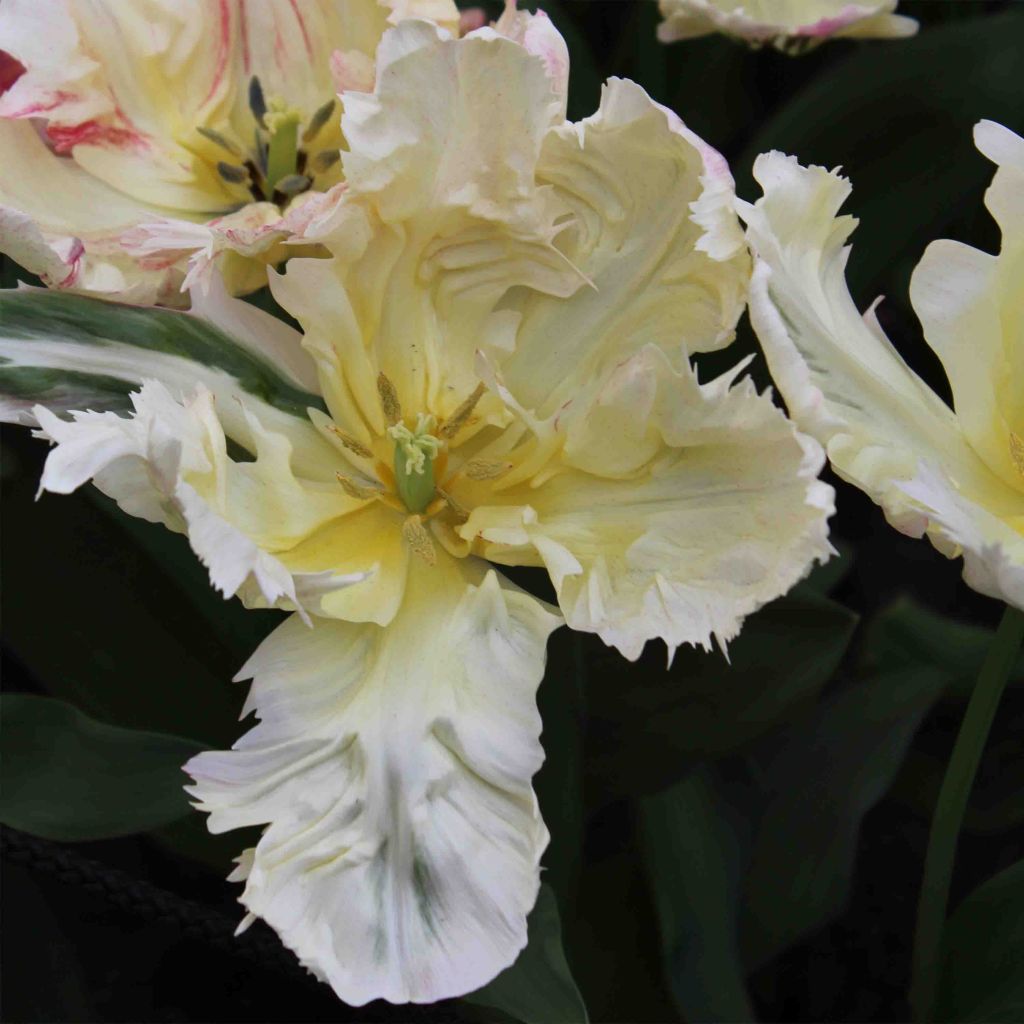

Tulipe Libretto Parrot - Tulipe perroquet
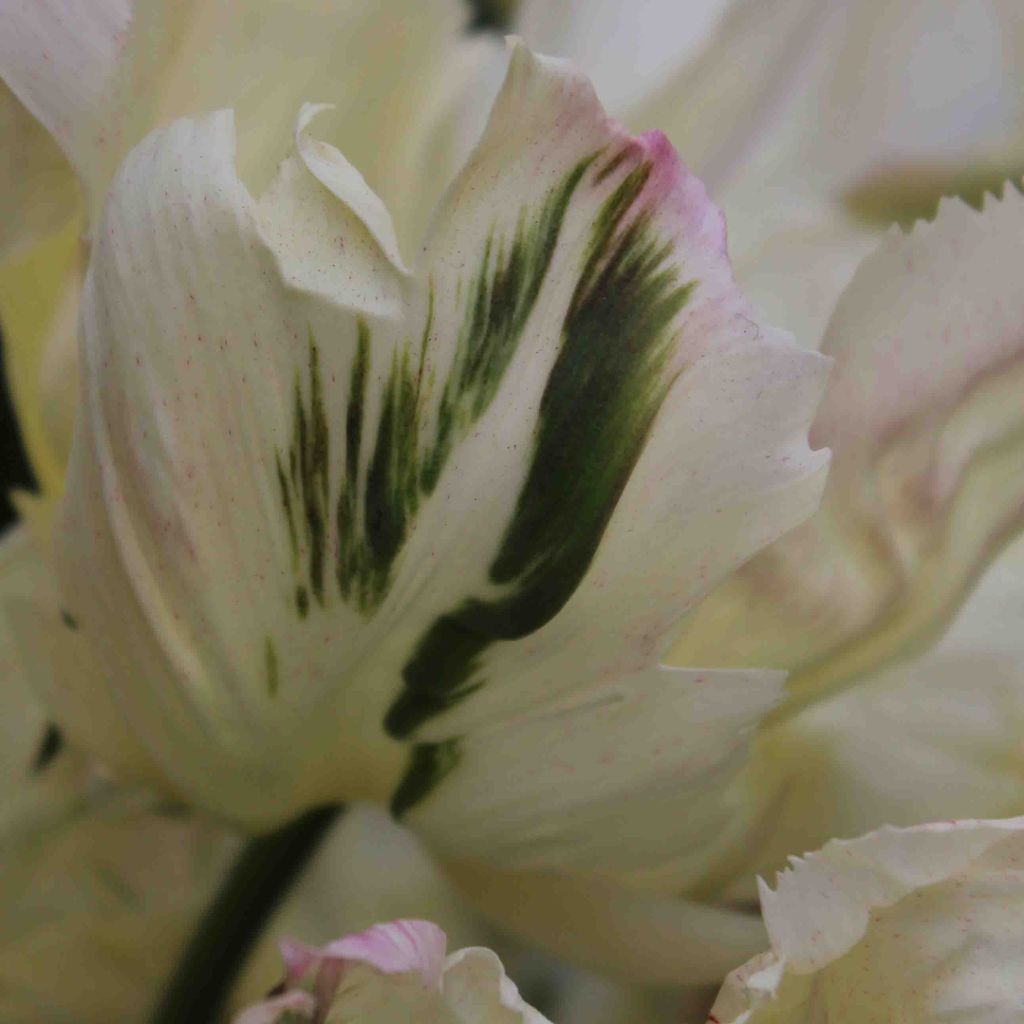

Tulipe Libretto Parrot - Tulipe perroquet
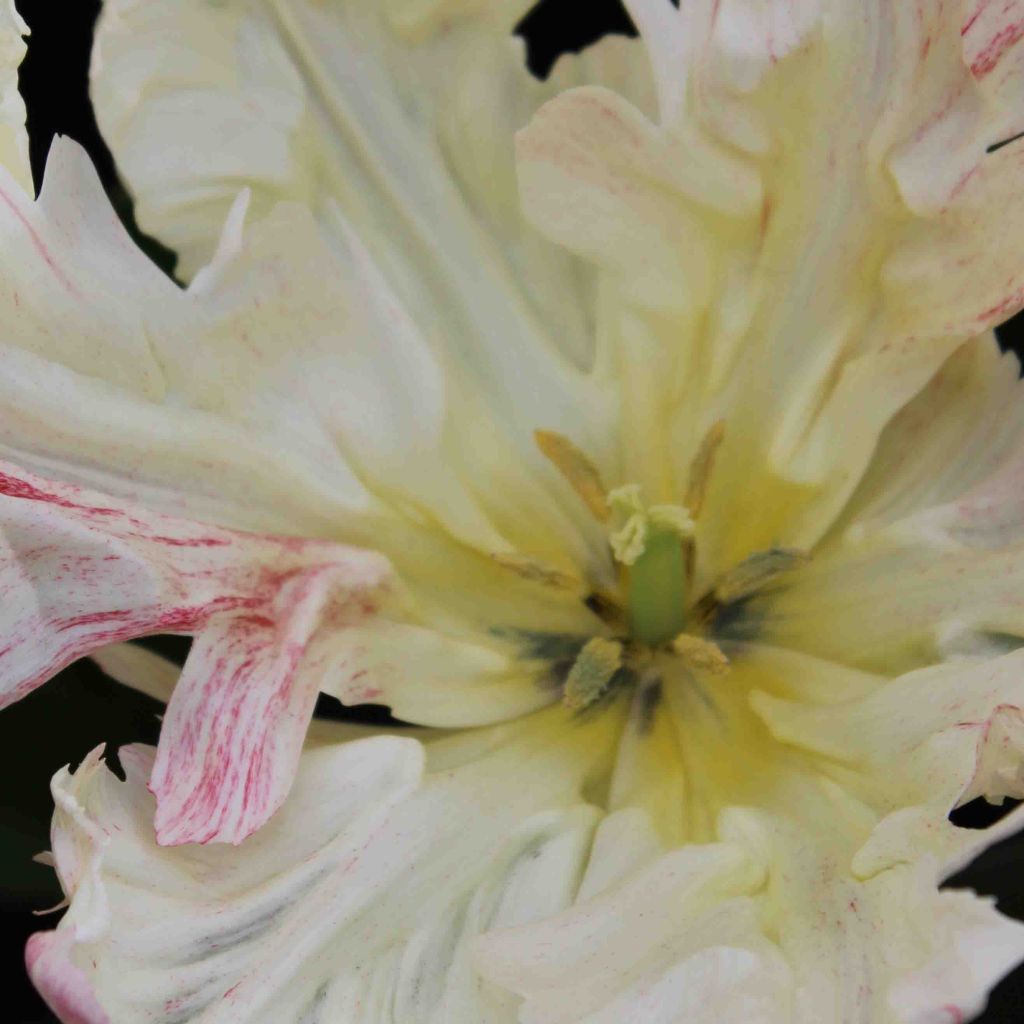

Tulipe Libretto Parrot - Tulipe perroquet
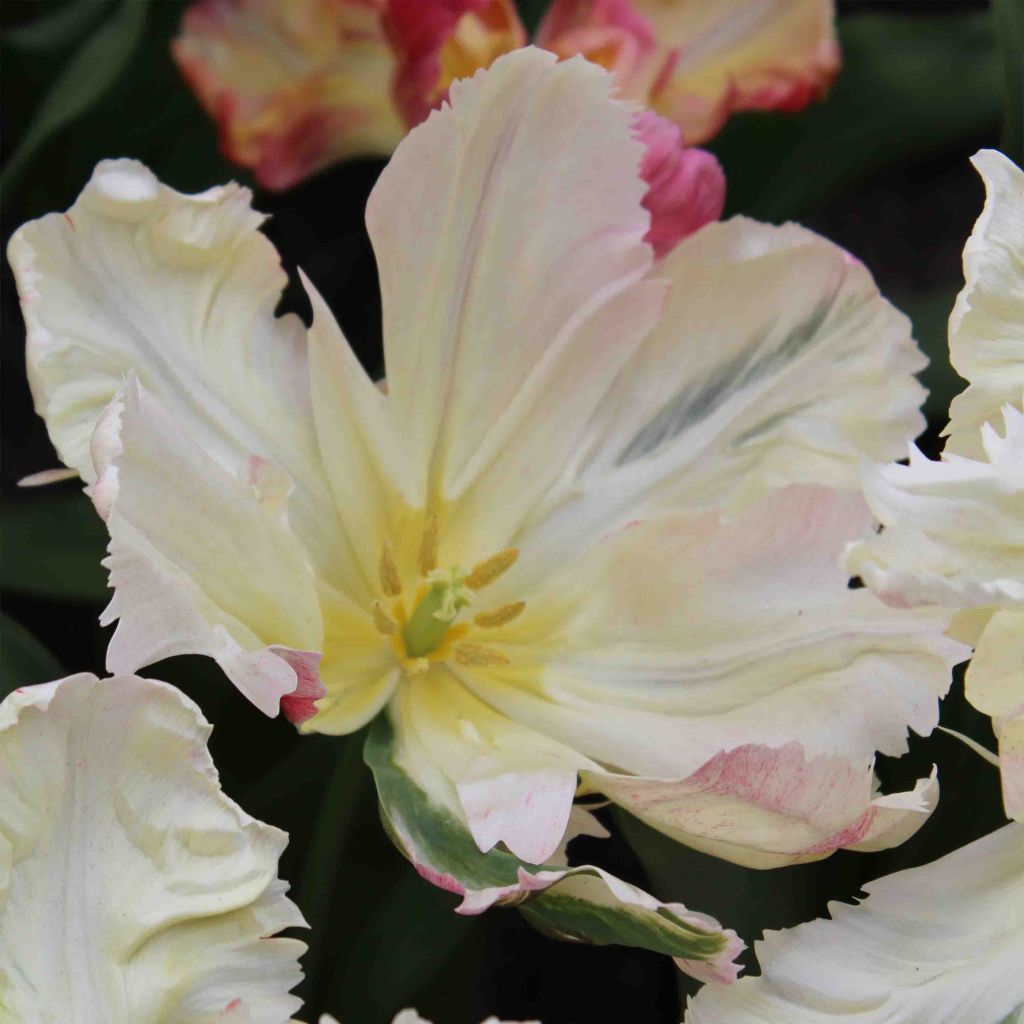

Tulipe Libretto Parrot - Tulipe perroquet
Tulipa Libretto Parrot
Tulipa Libretto Parrot
parrot tulip
Unfortunately, my 10 bulbs never shot. Very disappointed." Correction : "Unfortunately, my 10 bulbs never sprouted. Very disappointed.
Franca, 26/04/2023
This plant carries a 6 months recovery warranty
More information
We guarantee the quality of our plants for a full growing cycle, and will replace at our expense any plant that fails to recover under normal climatic and planting conditions.
From €5.90 for pickup delivery and €6.90 for home delivery
Express home delivery from €8.90.
Does this plant fit my garden?
Set up your Plantfit profile →
Description
Tulipa Libretto Parrot has puffed and twisted petals that blend creamy white, light salmon pink, and lilac in their folds. All these watercolour shades are animated by green flames and yellow highlights that streak the corolla. Perched on sturdy stems, this precious flower beautifully completes the tulip season with unmatched originality, happily accompanying flowering perennials. It is also an excellent cut flower, to be included in a baroque-inspired bouquet.
Tulipa 'Libretto Parrot' belongs to the Liliaceae family. Of horticultural origin, it is a highly appreciated and widely cultivated variety belonging to the 'Parrot Tulips' group, whose main characteristic is huge flowers with twisted, puffy, ruffled, and irregularly fringed petals. 'Libretto Parrot' is also obtained through mutation (sudden appearance of new characteristics that are maintained in subsequent generations). It is medium-sized (40cm (16in)) and its flower is large, easily measuring 10 cm (4in) in diameter. Its palette of variegated colours includes cream, green, white, flesh pink and bluish pink to mauve lilac, with large areas of light yellow. Each flower has its own personality and evolves differently over time. The original shape of the parrot tulip adds extra charm, making it touching and delightful, even when its buds slowly but fully open in a vase revealing a yellow centre. It flowers in late April, at the end of the tulip season.
Parrot tulips are well-known for their wealth of colours and stunning and variegated flowers, suitable for flowerbeds and bouquets. In the 18th century, they were called 'monstrous' but this group developed a lot in the 1930s when it was discovered that irradiating bulbs with X-rays caused this mutation. They are among the most widely planted varieties. The 'Libretto Parrot' Tulip will delicately adorn a centrepiece or bridal bouquet.
Tulips are unmatched for adding charm to pots or sunny gardens. remember to consider the height and flowering period when designing your flowerbeds, as these can vary significantly from one cultivar to another. It is a good idea to plant a few more bulbs for superb cut flowers that last a long time in a vase.
About botanical species: Tulip species are found in most parts of the Old World, from Western Europe to China and Japan, including Eastern Europe, Asia Minor, and Central Asia. Their distribution area also includes North Africa and the Indian subcontinent. The centre of diversity for the genus is in the Pamir and Hindukush mountains and the steppes of Kazakhstan.
There are various wild species, many of which are endangered. They are either large tulips from cultivated fields, the most well-known being the Agen Tulip (Tulipa agenensis), or small tulips found in wooded areas or among rocks in the mountains. In cultivation, these are called "botanical tulips," and one of the most common is the Wild Tulip (Tulipa sylvestris), which often used to grow sheltered by vines and whose subspecies australis is known as the Southern Tulip.
Report an error about the product description
Tulipa Libretto Parrot in pictures
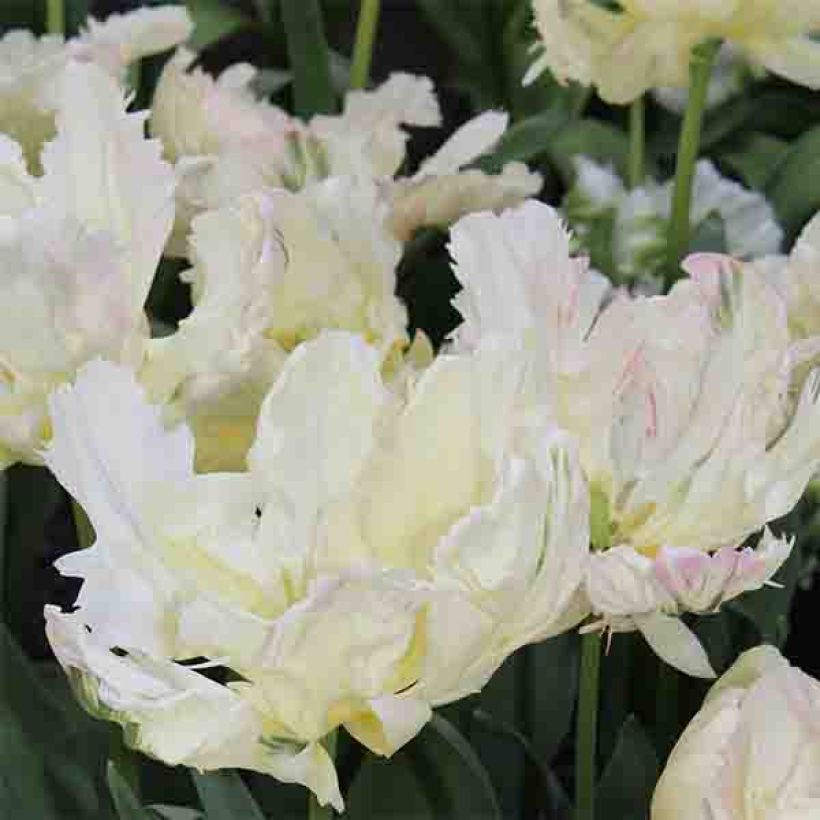

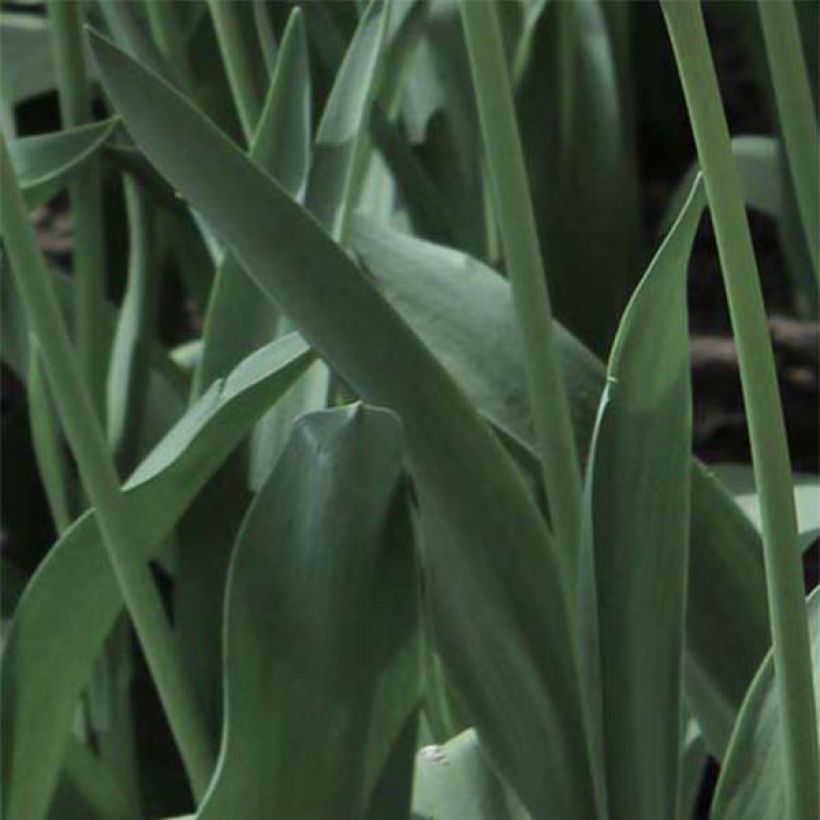

Plant habit
Flowering
Foliage
Botanical data
Tulipa
Libretto Parrot
Liliaceae
parrot tulip
Cultivar or hybrid
Planting and care
Plant the bulbs in autumn, from September to December, at a depth of 15 cm (6in), 10 cm (4in) apart in ordinary, slightly acidic, neutral, or slightly alkaline, loose, well-worked, and well-drained soil. Never add manure or poorly decomposed compost to the planting soil, as this could cause the bulbs to rot. The 'Libretto Parrot' tulip will thrive in moist to dry soil in summer, in a sunny or partially shaded location. After flowering, it is best to remove the fruits to avoid exhausting the plant.
Planting period
Intended location
Care
-
, onOrder confirmed
Reply from on Promesse de fleurs
Haven't found what you were looking for?
Hardiness is the lowest winter temperature a plant can endure without suffering serious damage or even dying. However, hardiness is affected by location (a sheltered area, such as a patio), protection (winter cover) and soil type (hardiness is improved by well-drained soil).

Photo Sharing Terms & Conditions
In order to encourage gardeners to interact and share their experiences, Promesse de fleurs offers various media enabling content to be uploaded onto its Site - in particular via the ‘Photo sharing’ module.
The User agrees to refrain from:
- Posting any content that is illegal, prejudicial, insulting, racist, inciteful to hatred, revisionist, contrary to public decency, that infringes on privacy or on the privacy rights of third parties, in particular the publicity rights of persons and goods, intellectual property rights, or the right to privacy.
- Submitting content on behalf of a third party;
- Impersonate the identity of a third party and/or publish any personal information about a third party;
In general, the User undertakes to refrain from any unethical behaviour.
All Content (in particular text, comments, files, images, photos, videos, creative works, etc.), which may be subject to property or intellectual property rights, image or other private rights, shall remain the property of the User, subject to the limited rights granted by the terms of the licence granted by Promesse de fleurs as stated below. Users are at liberty to publish or not to publish such Content on the Site, notably via the ‘Photo Sharing’ facility, and accept that this Content shall be made public and freely accessible, notably on the Internet.
Users further acknowledge, undertake to have ,and guarantee that they hold all necessary rights and permissions to publish such material on the Site, in particular with regard to the legislation in force pertaining to any privacy, property, intellectual property, image, or contractual rights, or rights of any other nature. By publishing such Content on the Site, Users acknowledge accepting full liability as publishers of the Content within the meaning of the law, and grant Promesse de fleurs, free of charge, an inclusive, worldwide licence for the said Content for the entire duration of its publication, including all reproduction, representation, up/downloading, displaying, performing, transmission, and storage rights.
Users also grant permission for their name to be linked to the Content and accept that this link may not always be made available.
By engaging in posting material, Users consent to their Content becoming automatically accessible on the Internet, in particular on other sites and/or blogs and/or web pages of the Promesse de fleurs site, including in particular social pages and the Promesse de fleurs catalogue.
Users may secure the removal of entrusted content free of charge by issuing a simple request via our contact form.
The flowering period indicated on our website applies to countries and regions located in USDA zone 8 (France, the United Kingdom, Ireland, the Netherlands, etc.)
It will vary according to where you live:
- In zones 9 to 10 (Italy, Spain, Greece, etc.), flowering will occur about 2 to 4 weeks earlier.
- In zones 6 to 7 (Germany, Poland, Slovenia, and lower mountainous regions), flowering will be delayed by 2 to 3 weeks.
- In zone 5 (Central Europe, Scandinavia), blooming will be delayed by 3 to 5 weeks.
In temperate climates, pruning of spring-flowering shrubs (forsythia, spireas, etc.) should be done just after flowering.
Pruning of summer-flowering shrubs (Indian Lilac, Perovskia, etc.) can be done in winter or spring.
In cold regions as well as with frost-sensitive plants, avoid pruning too early when severe frosts may still occur.
The planting period indicated on our website applies to countries and regions located in USDA zone 8 (France, United Kingdom, Ireland, Netherlands).
It will vary according to where you live:
- In Mediterranean zones (Marseille, Madrid, Milan, etc.), autumn and winter are the best planting periods.
- In continental zones (Strasbourg, Munich, Vienna, etc.), delay planting by 2 to 3 weeks in spring and bring it forward by 2 to 4 weeks in autumn.
- In mountainous regions (the Alps, Pyrenees, Carpathians, etc.), it is best to plant in late spring (May-June) or late summer (August-September).
The harvesting period indicated on our website applies to countries and regions in USDA zone 8 (France, England, Ireland, the Netherlands).
In colder areas (Scandinavia, Poland, Austria...) fruit and vegetable harvests are likely to be delayed by 3-4 weeks.
In warmer areas (Italy, Spain, Greece, etc.), harvesting will probably take place earlier, depending on weather conditions.
The sowing periods indicated on our website apply to countries and regions within USDA Zone 8 (France, UK, Ireland, Netherlands).
In colder areas (Scandinavia, Poland, Austria...), delay any outdoor sowing by 3-4 weeks, or sow under glass.
In warmer climes (Italy, Spain, Greece, etc.), bring outdoor sowing forward by a few weeks.


































